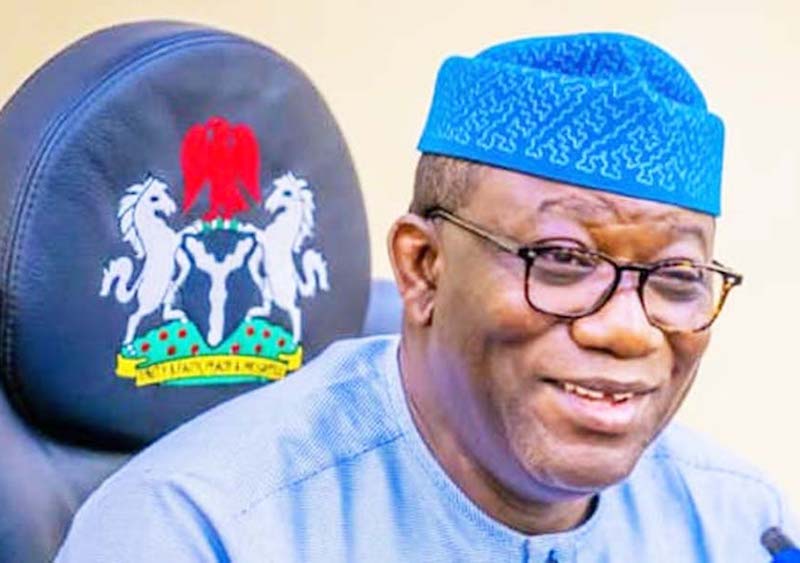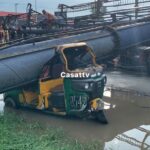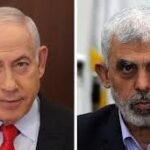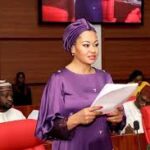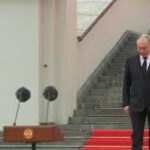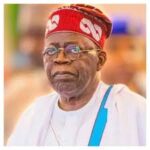[ad_1]
Ekiti State Governor and Chairman, Nigerian Governors’ Forum, Dr. Kayode Fayemi, formally declared his intention to contest for 2023 presidential election on the platform of All Progressives Congress in Abuja recently. At a session with journalists shortly after his declaration, Fayemi provided insight into diverse challenges undermining Nigeria and proposed some strategies to stabilise the federation. Gboyega Akinsanmi brings you details from the session
With your declaration for 2023 presidency, what do you consider Nigeria’s most challenging problem?
In every polity, impunity is a very serious issue. There are a number of dimensions to the impunity that is in our country. I always say something that as a leader, it is not enough to be competent, particularly in Nigeria. Also, as a leader, it is not enough to be committed and compassionate. What is also lacking in Nigeria is the leadership and the courage to do that what is right. Some people consider themselves as principalities and people who believe that they are the owners of this country. These people believe they can do whatever they like. Also, they believe that the law cannot catch up with them. We will not be arbitrary but we would be very, very sneaky about upholding the rule of law, and access to justice to all Nigerians.
How then do you intend to tackle impunity in the political space if eventually elected?
There are different levels of impunity. We need to also make sure that we do not leave our people with the temptation to do the wrong thing under the guise of religion, culture or ethnicity. We must at all times be advocates of citizen’s rights, as well as responsibilities. Because when you have rights, you also have responsibilities as a citizen of the country. We must uphold this value and live by it. Impunity reigns because our justice system has been crippling and because the entire justice sector system in our country is problematic. If we look at the journey from the investigation of the crime, to conviction of the crime you would have forgotten that the person actually committed the crime. I think swift delivery of justice, access to justice, accountability in society is areas we need to pay attention to. We need to also support our judicial officers, so that we will not again tempt them to resort to other misbehaviour because the state has not taken on its own responsibility in terms of remuneration, in terms of support to the judicial officers.
In few weeks, political parties will be conducting their primaries to enable them nominate candidates for different elective positions. Even though the Electoral Act recommends consensus, direct and indirect modes of primaries, which mode will you prefer most?
Under the Constitution of the All Progressives Congress (APC), the model of primaries can either be direct or indirect or consensus. Now, we have an Electoral Act now that says for us to have consensus, all players must sign off. For me, yes, we have a lot of people who have expressed their interest. I think we must commend the party for being so popular to attract this calibre of Nigerians offering their services to the country. I think, for me, Nigerians who also wants to field the polls for the President of Nigeria must be citizens of the country. I believe from all my travels around the country over the last one month, I believe both inside and outside the party, the sentiments will appear to be anything, but consensus. That is because people want to have a say and do not forget we have a president, who has been an advocate for bottom-up political practices. President Muhammadu Buhari is known for its passion for every member of the party having a say in the decision that affects the party so in that sense, I have no problem stalking a claim to a primary process, whether it is indirect or direct. I do not have a problem with that.
Nearly all geo-political zones in the country are insecure and unsafe despite different initiatives taken to address this challenge at different levels. What has the government left undone?
There is a lot that the government is doing that the government cannot talk about some times. There are also areas of impediments that we need to tackle quickly. Our principal officers in the security sector given my background that I spoke to let us know some of the challenges they face. I always talk about Egypt and this country was able to recruit in an emergency manner in 1967. It moved from an army of 10,000 to 250,000, within the space of one year. Today, there are all sorts of bureaucratic impediments that are not allowing us to expand the men and women that we have in the armed forces and in the police. Now, we need to do that quickly. If we are not able to do that in the shortest possible time, by clearing the windows bureaucratic impediments, we need to bring on board our reserved elements, who are still on duty. Our soldiers even in retirement they are on duty: Major Generals, Colonels, and Brigadier. They are all over the place. Many of them would love to serve and help tackle this problem probably in the shortest possible because it is, firstly, the problem of men. We don’t have enough people in uniform, and even the ones we have, they are undertaking police duties. There is no single state in this country today where you do not have military officers and soldiers patrolling on internal security issue. That is not the job of a soldier.
Considering your perspective to the constitutional mandate of the military, what explains military involvement in managing internal security challenges?
Sometimes, you may need soldiers to act in civil authority. Those are exceptional circumstances. We need to populate our security agencies. Egypt is not up to half of our population. We are told Egypt has one million police officers. In Nigeria, we have well, we always tell ourselves we have 350, 000 policemen. But 150, 000 amongst them are doing VIP duties. So, not only do we have to expand and turning our schools during vacation to training facilities because part of the problems we have is training facilities. We may have to turn our schools to training camps during vacation to enable us train more men and bring into the task of defending Nigeria. Taking cognisance of this approach, we can get more men in the force.
Given unconventional nature of security challenges we are facing as a people, do we need a new strategy to fight banditry, insurgencies and terrorism nationwide?
As I was talking about operating in a new environment, a new order of battle, a new force posture has to be developed by our military because we are not fighting a conventional war. Like you said, what we are dealing with now is unconventional. More often than not, you do not even see the people that you are fighting. So, you need to devise counter insurgency, counter terrorism measures that will go beyond infantry and other extreme approaches to warfare. We are at war. What happened in the train is an indication that we need to take immediate measures. Around the suburb of Abuja, I hear some of these things are also beginning to happen. We need to really watch. I believe the president you know is not a man of many words. He is taking too many steps that some of us may not be able to speak to. He is also preventing many things that they cannot also come up and say that we stopped attempts by bandits to destroy this particular community yesterday. The task of securing is ongoing. It is continuous. It is a work in progress. We must really have faith, but we must take adequate steps on intelligence, on better recruitment and on equipment in order to address the issue.
Electricity is still a huge challenge crippling businesses and economic activities in Nigeria. What is your approach to ensuring stable electricity supply?
I think the solution is simple. It requires changing our strategy. It is time to do away with a national grid. We now need to begin to look seriously in the direction of zonal or regional grids or even micro, or mini grids outside of the mainstream of official national energy grid. This is the only way to solve this problem. Our focus should also be on new energy, especially on renewable energy as well. This national grid is completely broken and fixing it everyday is a problem that we cannot easily tackle.
The level of unemployment is indeed appalling. According to the National Bureau of Statistics, it is as high as 33.33%. What can we do to break this vicious cycle of unemployment?
For me, it is not the job of government to start focusing on employment. However, it is our job to provide an enable environment for private sector to thrive. It is our job to encourage the agricultural sector to thrive. It is our business to enable the infrastructure sector that will have to create jobs. There are so many jobs tied to these various critical segments of our economy. That is what we need to do in addition to address the question of skills. Because we talked about employments, majority of young people do not have the requisite skills to do the job that is necessary. We need innovation. We need creativity. We need technology. We need skills in addition to providing the enabling environment to allow this to happen.
[ad_2]
Source link
